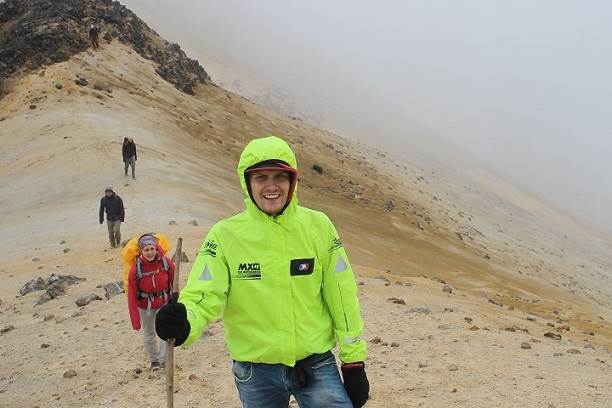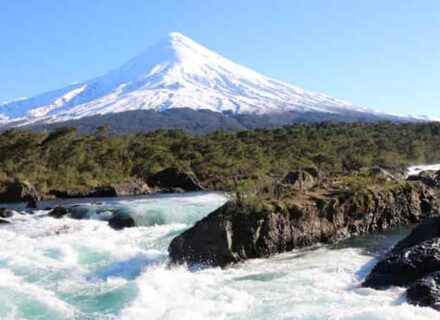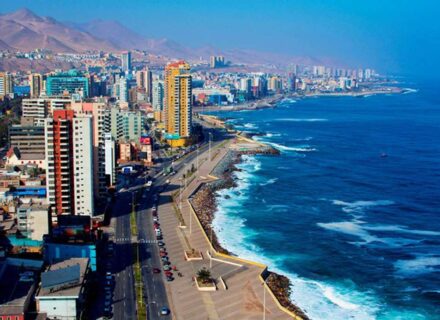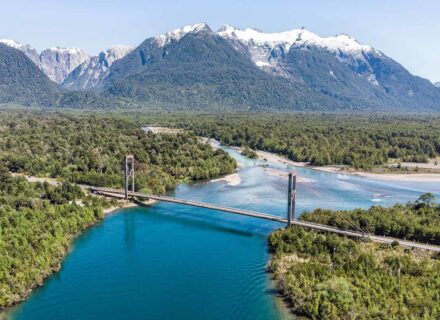On a map, the Zona Cafetera (“Coffee Zone”) of Colombia is relatively small, however the extremely hilly landscape of the region helps the Andean country to be the second largest coffee producer in the world. This very same landscape, recently declared a UNESCO World Heritage Site, also allows for some incredible hiking.
Unlike the likes of the Inca Trail in Peru, Cotopaxi in Ecuador or Torres del Paine in Chile, the trekking landscapes of the Zona Cafetera in Colombia are incredibly green. This is not to take anything away from the likes of the Peruvian Andes or the majestic Torres del Paine, however the flora and fauna of the luscious green hills and jungle that you walk through if you opt for a day hike in the Cocora Valley is quite incomparable.
Visiting the Cocora Valley is a mini-complete experience of Colombian tradition, culture and hospitality. There are a number of ways to explore the valley, most known for the national tree and symbol, the Quindio Wax Palm Tree. As the world’s tallest palm, it can reach up to 60m and creates a very impressive, unique and almost surreal landscape.
Once no longer actively used on the coffee farms as “mulitas mecánicas” (mechanical mules), old Jeep Willy’s from the 1940s, 50s and 60s leave from the nearby town of Salento and serve as a means of public transport to the very small village of Cocora. The 15-20 minute trip on the Willy is a great experience in itself. The Willy has become an important symbol of the Zona Cafetera since their introduction in the 40s from the US army, and the drivers of the cars look after them with impeccable care – the nearby city of Armenia even has a yearly festival dedicated to the Willy and the art of Yipao, loading up your Jeep with unthinkable amounts of coffee and bananas, then balancing it on two wheels while parading through the city’s high street. Back in Salento, the Jeeps fill up with tourists and locals alike, and if you’re lucky you get to stand on the back of them for a cool breezy ride through the stunning landscape.
Cocora itself consist of a few cattle farms and some fincas (ranches), but otherwise everything revolves around horse rentals and restaurants. The region still does not see the same amount of foreign tourism as other areas, but it is very popular among Colombians coming from the capital or other cities nearby.
The valley and the symbolic palm tree views can be seen only 15-20 minutes’ walk away, which is what the vast majority of people come for, but there is also a fantastic 6-8 hour hike available to do both starting and finishing in the village. On my first visit to the region I didn’t have time enough set aside for this hike which I was always gutted about. Luckily I recently had the chance to return and it turned out that the wait was worth every bit of it.
The circuit can be done in either direction, and with the same starting and finishing point neither direction will consist of more or less amounts of uphill challenges, however I would highly recommend the trek in the anti-clockwise direction, meaning starting at the bottom of the village. In this direction we began by walking through the valley adjacent to that of the palm trees, seeing the tops of them in the distance on one side, and wonderful farming land on the other. The tracks were muddy and wet, but easy enough to walk with good shoes/boots. The landscape quickly changed to jungle, crossing about 6-7 bridges across rivers. We then began ascending slowly until reaching a finca where we were served a hot cup of coffee while watching the nearby hummingbirds dancing around us. Horses of those who did the walk assisted were given a rest and for those who had the stamina to do the additional 800 ascend to Finca de la Montana were able to do so. That final 30 minute walk to the top was tough, but worth the effort.
From Finca de la Montana it was all downhill with stunning views as we descended through everything from cloud forest to pine and bamboo forest and finally the famous Quindio Wax Palm fields of the valley before returning to Cocora.
On arrival we opted for the local speciality of trout, if you ever go make sure to keep it simple with “trucha a plancha” – grilled trout cooked in garlic butter, obviously served up with a generous portion of patincones (fried plantain).
It had come to the end of a long day, but it was without a doubt one of the best day hikes I have done in my 10+ years in Latin America. The spectacular views across the valleys, the flora and fauna, the river crossings and let’s not forget the great ride on the back of the Jeep, which is exactly how we finished, returning, by Jeep, last few sun rays in our faces as we stood on the back en route to a comfortable bed in Salento.
N.B. The circuit hike is relatively demanding and does require a reasonable level of physical fitness. Horses are available for those who don’t wish to hike.



